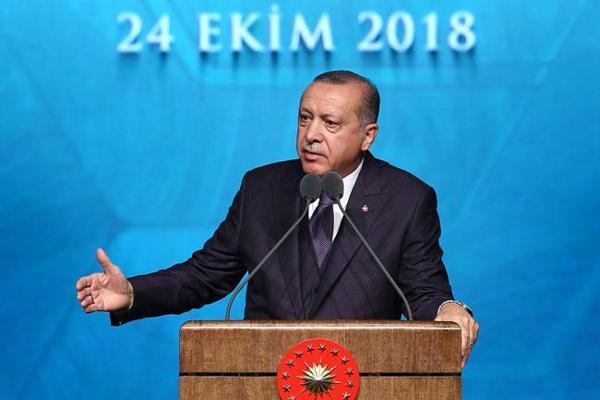President Erdoğan criticizes Council of State for ‘not working in line with new executive system’
ANKARA


Turkish President Recep Tayyip Erdoğan has criticized the country’s Council of State over a recent ruling to bring back a controversial national oath mandatory for students to chant in schools, saying it bypassed his authority when making the decision.
He slammed the Council of State for making the decision now and not a few years ago, when Turkey wasn’t governed by an executive presidency, accusing them of “not implementing the separation of powers.”
“The Council of State makes a ruling every five years. Where were you in 2013? Why is it that you didn’t make a decision in 2013 but are making one now?” he told a symposium on high courts.
Erdoğan was granted expansive executive powers after receiving a narrow approval in an April 2017 referendum on constitutional changes and a change of the governance system.
The old administration ended with the June 24 elections, which put the new system approved in the referendum in practice, Erdoğan said.
“I have said that the crooked understanding that does not practice the separation of powers and that blocks the will of the nation through antidemocratic institutions would be restored. But I ask myself: ‘Is it restored?’ I see some practices that are reminiscent of the old system,” Erdoğan stated.
The Council of State should serve as a “consultant body,” he said. The presidency should not need to get consent from the Council of State on presidential decree laws, he added.
The public will ask the government to give an account of the court rulings, not the justice system, Erdoğan said, calling on courts to make “immediate and fair” rulings.
He recalled a tender for a harbor in the Aegean province of İzmir, which he said was delayed due to a court ruling, stressing the state had lost $1 billion because the company had changed its mind due to the court decision.
Meanwhile, Council of State chair Zerrin Güngör said the members of judiciary were always open to “scientific criticisms” of their verdicts. Speaking at the same gathering, Güngör, however, stressed that voicing an opinion about an ongoing case could shake confidence in the judiciary and the legal system.
